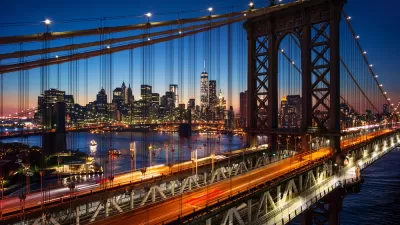Detroit is the darling of the media.
Detroit is the darling of the media. Whether it is to bash it or celebrate
it, Detroit is good for a story.
It will be a decade or more before the historians will start to connect
today's dots with tomorrow's reality.
I'm not making predictions, just observations.
Since 2008, I've had the opportunity to spend a couple of
weeks each year learning about Detroit from people who are there living,
working and trying to make a difference.
I am co-director of a study abroad program for university undergraduates
called IHP Cities in the 21st
Century. It is a thematic,
comparative program that sends 35 students each semester to three cities on
three continents after a two-week foundational orientation in the US. We expect
them to learn from places by the simple act of learning ways in which people,
planning and politics make these cities the places that they are. For the past three years, in partnership with the University
of Detroit Mercy Detroit Collaborative Design Center (UDM DCDC), we have initiated
our fall semester in Detroit.
In Detroit, the students live downtown, get around by bus,
learn from NGOs, meet a few politicians, explore neighborhoods, listen to
lectures on the city, find music and food, and generally try to get under its
skin. They talk to a lot of
people. They teach each other what
they have individually learned. At the end of the semester, they have performed
three more variations on that dance in three more cities across the globe that
are as different from Detroit as they are from one another.
Students leave Detroit surprised and energized. So do I –
every time. Because Detroit is not
unique. It has big city problems,
even as its population famously shrinks faster than predictions. Detroit has inequality, segregation,
job loss, poor education, abandonment, and food deserts. It also has loyalty,
investment, creativity, and cool. It has inadequate infrastructure, schools and
services. It has world class
museums, farmers markets and architecture. And it has a lot of land.
In other words, Detroit is like most cities around the
world.
If you focus on the similarities rather than the differences,
the problems of Detroit seem at least as solvable as the problems of other
cities. It turns out that highly
livable cities have huge challenges but they still work pretty well for many
people.

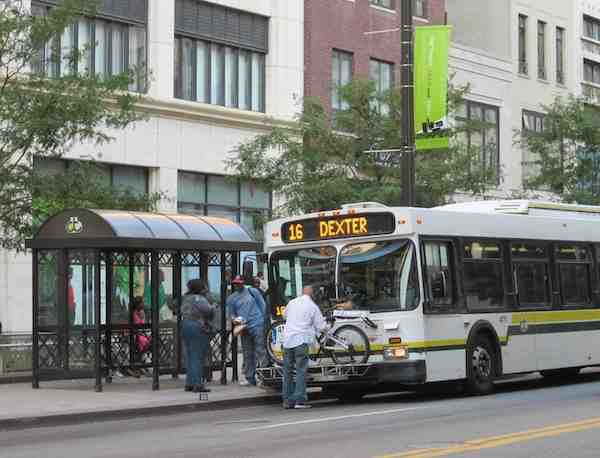
What makes a city thrive or revive? There are many precedents, but the
particular alchemy is reliably unpredictable. I don't know what will happen in Detroit. But I do know cities can't thrive
without people and people create a particular alchemy, and there are plenty of
people dedicated to the idea of Detroit, and dedicated to the physical place of
Detroit.
On successive days we had two panels discussions that I
might characterize as Detroit the former and Detroit the future. The first
panel included speakers who were participants in and historians of the labor
movement in Detroit. The purpose and
value of the United Auto Workers was unambiguous; the effectiveness of its organizing
compelling. It was easy to be
persuaded that organized labor would once again be the backbone of
Detroit. The following day, a
collection of entrepreneurs inspired the group with narratives of amazing
possibilities, tremendous challenges and the exhilaration of uncharted opportunities. This, too, was a compelling vision for
the future of Detroit.
These aren't competing ideas. Detroit, like every city,
needs multiple future visions. And Detroit has, and is attracting, people with
plenty of vision. Besides individuals, the auto companies are still paying
attention and the foundation money that is poured into Detroit is equal to the entire GDP of some
small countries.
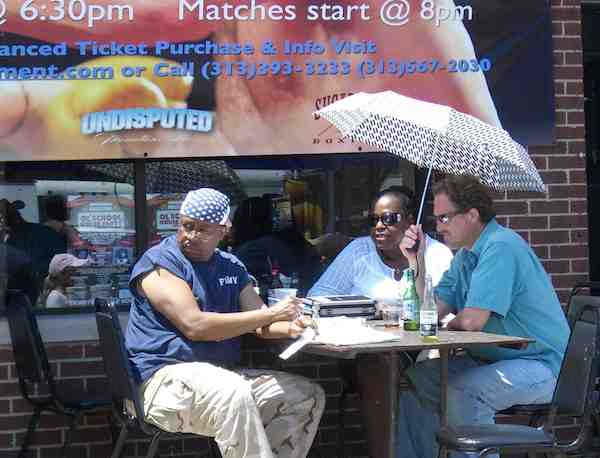
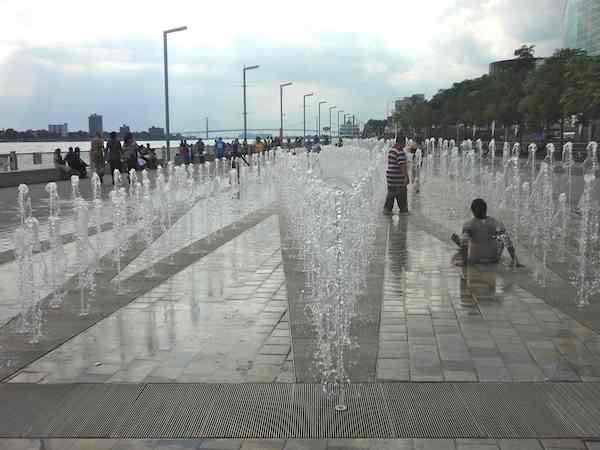
The city has political cronies, corruption and byzantine
bureaucracies. It also has
ambitious politicians who figure the opportunity for changing the tone is wide
open.
Charles Pugh, the City Council President, a newscaster
turned politician who aspires to be mayor, joked to our students that he will
have no trouble surpassing the achievements of his predecessors – all he has to
do is stay out of jail. In all
seriousness, Detroit has political challenges and people who are willing to
take them on.
In other words, Detroit is like most cities around the
world.
A lot of people have left Detroit; they have been leaving
Detroit for decades. And people are coming to Detroit. Some people who are there wish they
could leave. And some people have
left and come back. With very little prompting, you learn that they were born
here and wouldn't think of living anywhere else or that they were born
elsewhere (including elsewhere nearby) and see the city as the place for
entrepreneurism and experimentation and enthusiasm. All cities are places of in and out migration. That is how they thrive and change.
In the 60's and 70's people left the cities in the US. Some of them went to the suburbs; some
of them went "back to the land" and moved to rural California or Vermont. In the 80's and 90's people came back
to the cities and made them alive again. They were immigrants from other countries and from the
suburbs. They moved to neighborhoods
that had been devastated and deserted because real estate was plentiful and
cheap. People who move to Detroit can
get both – the wide open spaces and potential for self sufficiency coupled with
the amenities of urban living. People who are heading to Detroit are young, they are ready
to take on some risk for the opportunity to go to a place where it seems
anything is possible.
Perhaps Detroit isn't quite like most cities around the
world.
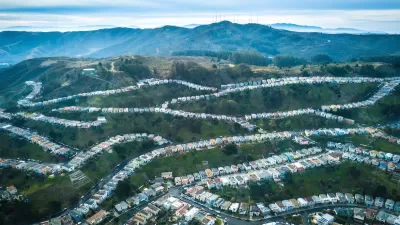
Depopulation Patterns Get Weird
A recent ranking of “declining” cities heavily features some of the most expensive cities in the country — including New York City and a half-dozen in the San Francisco Bay Area.

California Exodus: Population Drops Below 39 Million
Never mind the 40 million that demographers predicted the Golden State would reach by 2018. The state's population dipped below 39 million to 38.965 million last July, according to Census data released in March, the lowest since 2015.
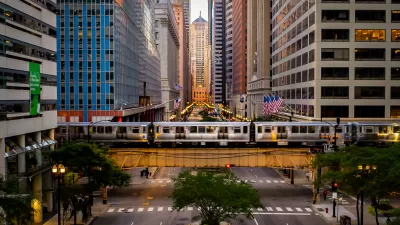
Chicago to Turn High-Rise Offices into Housing
Four commercial buildings in the Chicago Loop have been approved for redevelopment into housing in a bid to revitalize the city’s downtown post-pandemic.

New Park Opens in the Santa Clarita Valley
The City of Santa Clarita just celebrated the grand opening of its 38th park, the 10.5-acre Skyline Ranch Park.

U.S. Supreme Court: California's Impact Fees May Violate Takings Clause
A California property owner took El Dorado County to state court after paying a traffic impact fee he felt was exorbitant. He lost in trial court, appellate court, and the California Supreme Court denied review. Then the U.S. Supreme Court acted.

How Urban Form Impacts Housing Affordability
The way we design cities affects housing costs differently than you might think.
City of Costa Mesa
Licking County
Barrett Planning Group LLC
HUD's Office of Policy Development and Research
Mpact Transit + Community
HUD's Office of Policy Development and Research
City of Universal City TX
ULI Northwest Arkansas
Town of Zionsville
Write for Planetizen
Urban Design for Planners 1: Software Tools
This six-course series explores essential urban design concepts using open source software and equips planners with the tools they need to participate fully in the urban design process.
Planning for Universal Design
Learn the tools for implementing Universal Design in planning regulations.




















